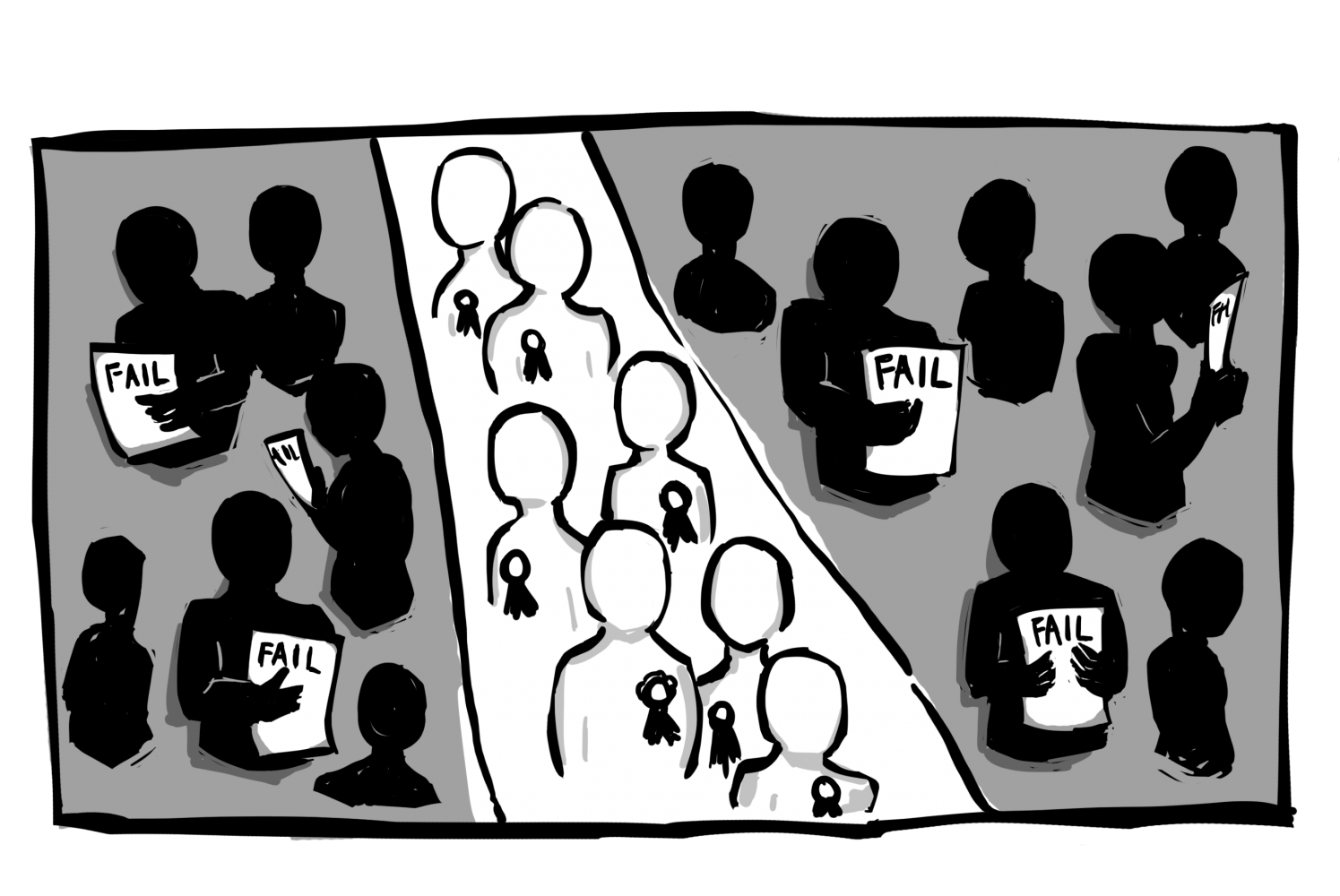Fixing MVLA’s Summer School System: Administrators Should Focus on Progress, Not Passing
August 14, 2017
Editor’s Note: A previous version of this article mischaracterized summer school’s drop rates by implying that the 213 students who dropped summer school in 2016 were urged to drop out by summer school administration. In reality, the majority of those students signed up for summer school in anticipation of receiving a failing grade in a class, and dropped when semester two’s grades were finalized to show they had not failed. The mistake has since been removed.
We apologize for the mistake and the misinformation it caused, and we hope to engage in constructive discussion and reporting on any coming changes to summer school.
Summer school aims for an ends rather than a means. It tries to help students make up credits or a class they failed, but how students achieve that goal seems almost an afterthought. As summer school administrators begin to draw up methods this fall to improve, they need to emphasize personalized education for remedial students. Not credit accretion.
Instead of helping struggling students on a personal basis, summer school currently places students in six-hour days focused on one subject. The 10-day schedule is designed to give teachers more vacation time and students a quick and painless process for accruing credits.
Teachers and administrators should rather focus on individual students’ needs. Instead of, “How can we best ensure students retake this class without an F,” we should ask, “How can students learn best in a remedial setting?”
The pursuit of higher-quality education can start with taking more time to prepare teachers. It’s common for summer school teachers to begin class with half-baked lesson plans, which creates unnecessarily long — and unproductive — classwork periods.
The district often complains it can’t recruit quality teachers, yet spends little time providing any summer school teacher with the adequate resources to plan curricula and adapt to remedial education.
The current schedule gives way to half-baked lesson plans too. The six-hour days strains students’ attention and places burdens on teachers to create massive daily lesson plans. More, the 10-day session doesn’t provide enough time for teachers to identify students who need help.
Shorter days and longer courses solve both issues. A revised schedule would place less stress on teachers and students, and allows teachers more time to understand students’ individual needs.
The district previously had and is currently considering a three week-long and four hour per day schedule. With a goal of individualized education, that paced approach trumps rushing students toward their credits.
The district can also take inspiration from Saint Francis’ teacher aide system, which hires recent high school graduates for each classroom. If Los Altos alumni could support a teacher for one session, teachers would have more freedom and a helping hand. Students would receive more individual tutoring that could help fill the common hours-long work periods they receive.
None of these actions are cost-free. Training teachers takes time, a longer course discourages teachers from summer school, hiring Los Altos alumni requires more funding. With summer school budget cuts a few years ago, it’s a high demand to request all of these programs.
Yet summer school’s purpose, and the purpose of any school, is to educate. As administrators’ plans take shape, they must focus on supporting students’ individual needs over credit-accretion.



